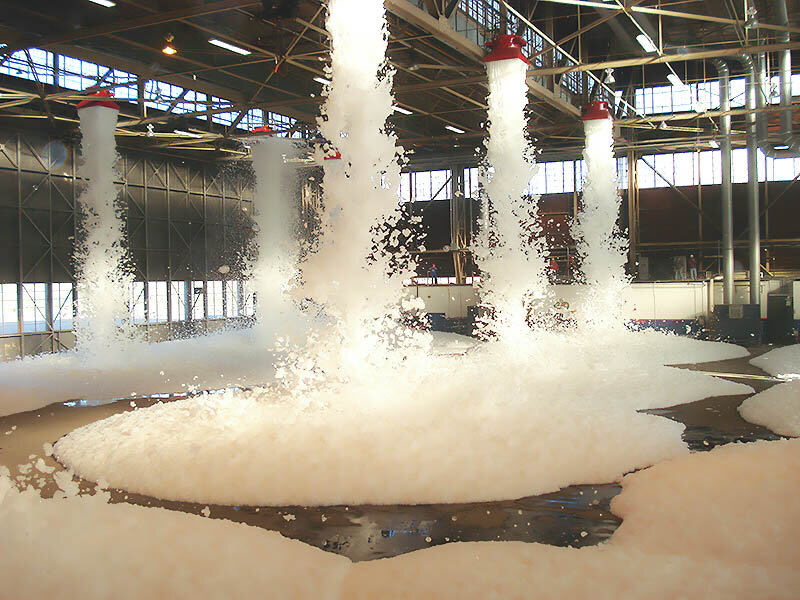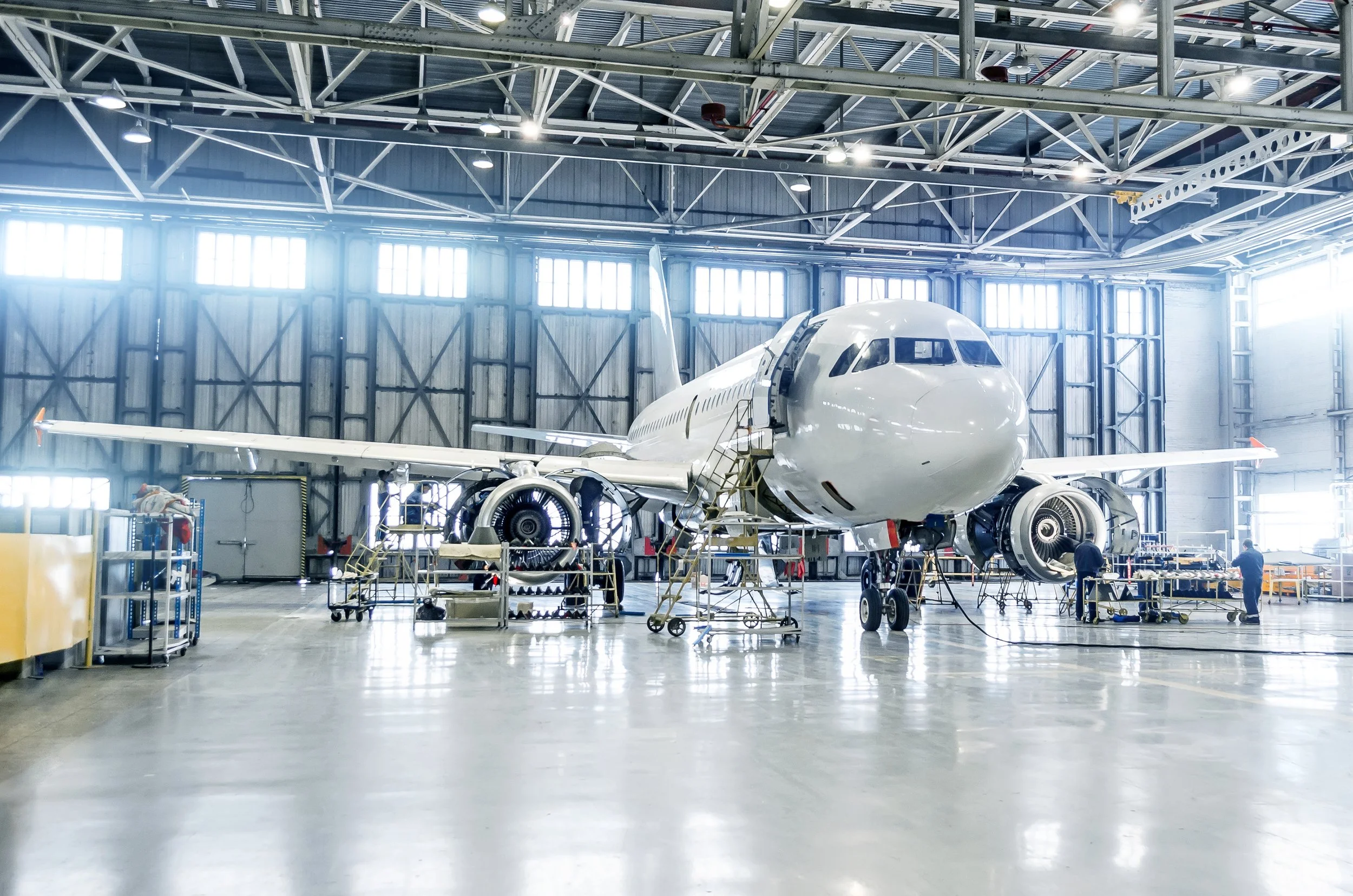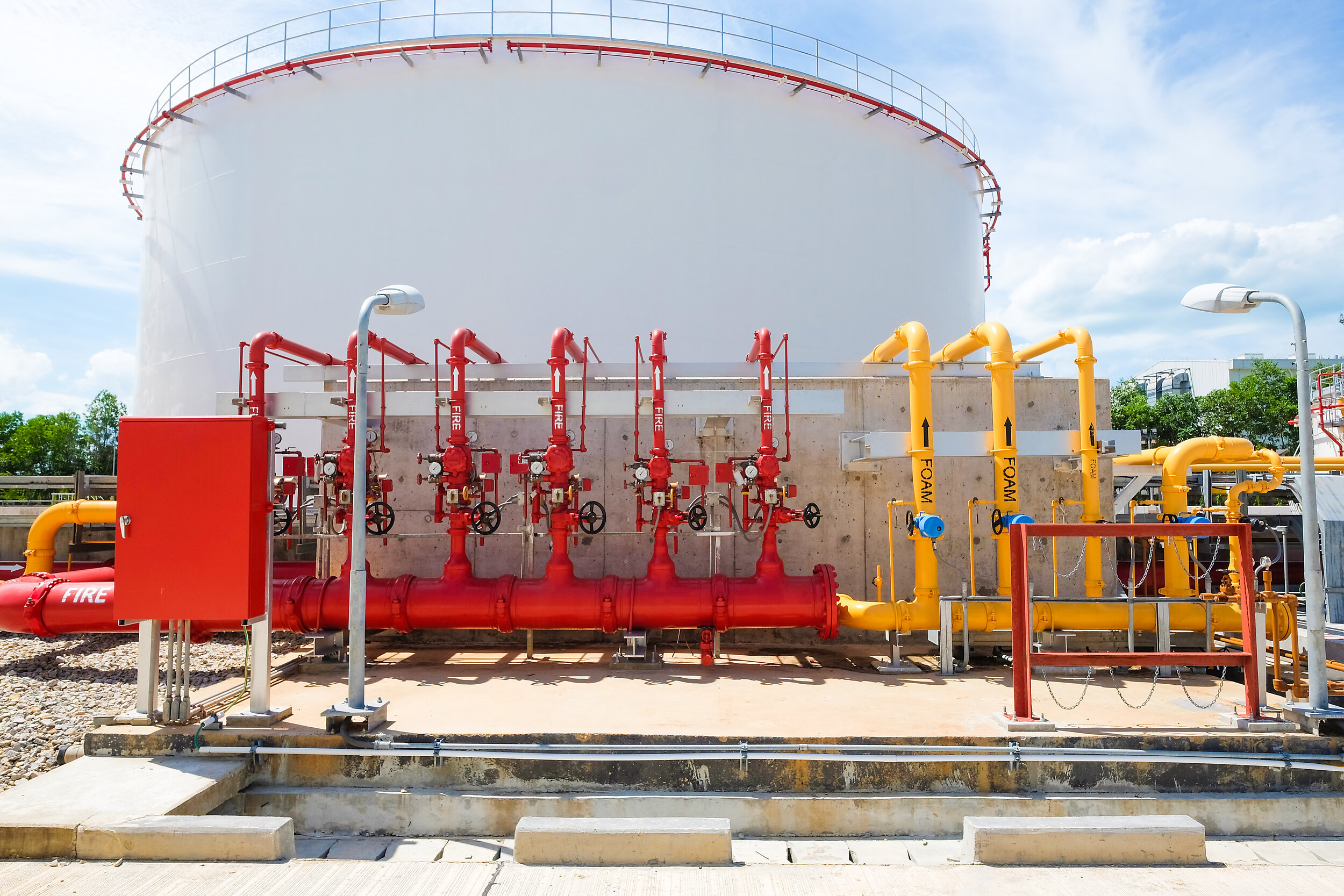
Foam suppression Systems
Foam Suppression Systems
Fuller Fire and Safety Equipment, Inc. specializes in designing, engineering, installing, and servicing low, medium, and high expansion foam systems. Foam suppression systems use a foam that is made up of three components: foam concentrate, water, and air. When these three components come together, it creates a very effective form of fire suppression that is ideal for protecting flammable and combustible liquids. The foam that is expelled extinguishes flames by blanketing the effected area and cooling it, separating the flame source from the product surface, smothering, and suppressing vapors.
Typical areas of fire protection
Warehouses
Oil Quenches
Fuel Storage Tanks
Loading Facilities
Wood Yards
Aircraft hangars
Petrochemical
Oil and Gas
Flammable liquid storage
Tank farms
Bladder Tanks
Bladder Tanks are an integral part of a balanced pressure proportioning system that includes a pressure-rated tank with an internal elastomeric bladder that stores foam concentrate. When the system is activated, incoming water applies pressure to the concentrate in the bladder, which then supplies pressurized concentrate to the proportioning device. The device portions out the foam concentrate into the fire water line, creating foam solution. The solution is then piped to the discharge devices protecting the hazard area.
Compressed Air Foam Systems
Compressed Air Foam Systems, also known as CAFS, is a system that produces high-quality compressed air foam that can be used to fight both solid and liquid fires. Three main components are used in the production of CAF (water, foam compound, and air) just like normal foam systems uses, but with a Compressed Air Foam System, the foam expansion actively takes place in a mixing chamber in the system with the use of compressed air. Due to the active foam formation, CAF foam is more homogeneous in structure, and it has a high energy content compared to conventional foams.






